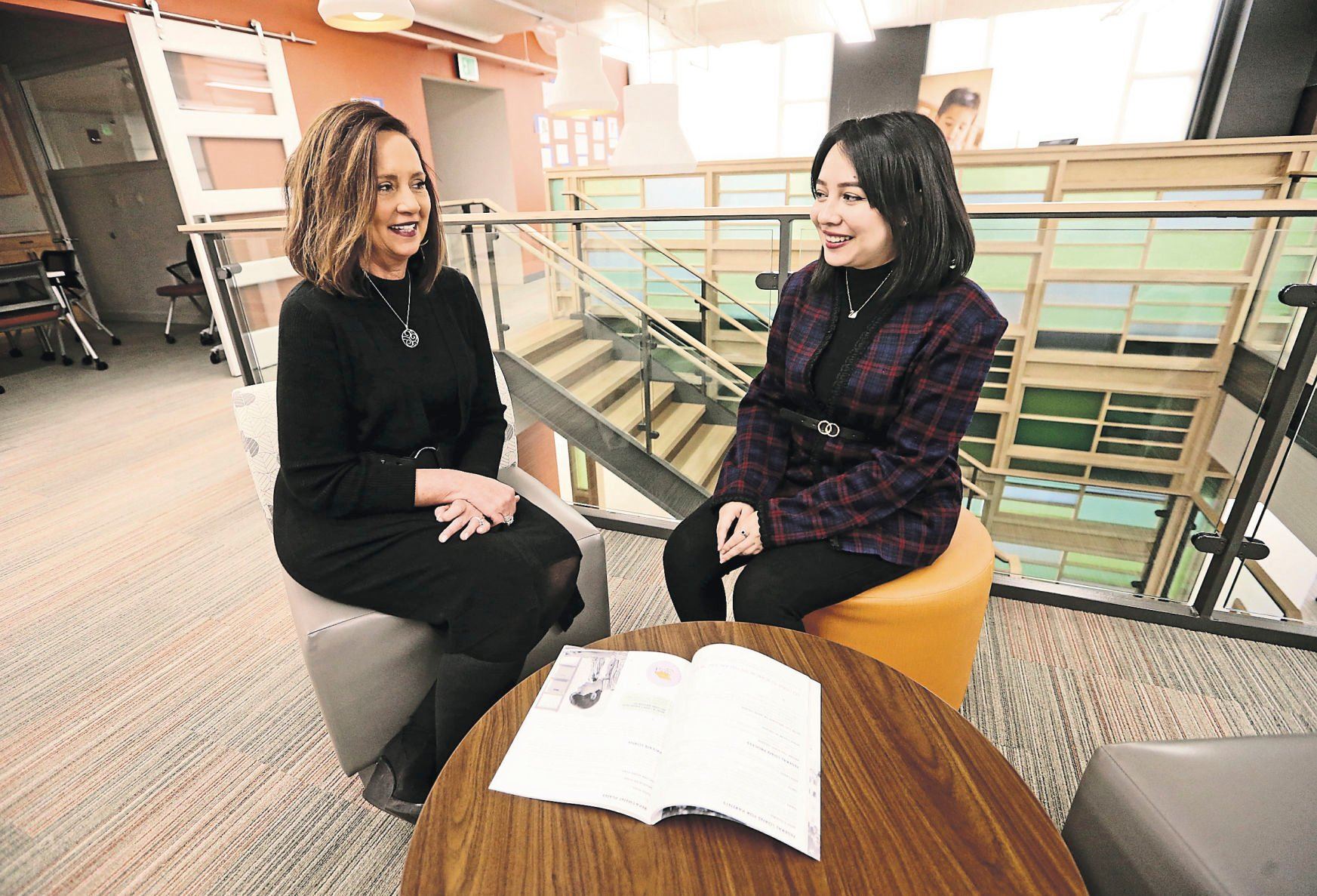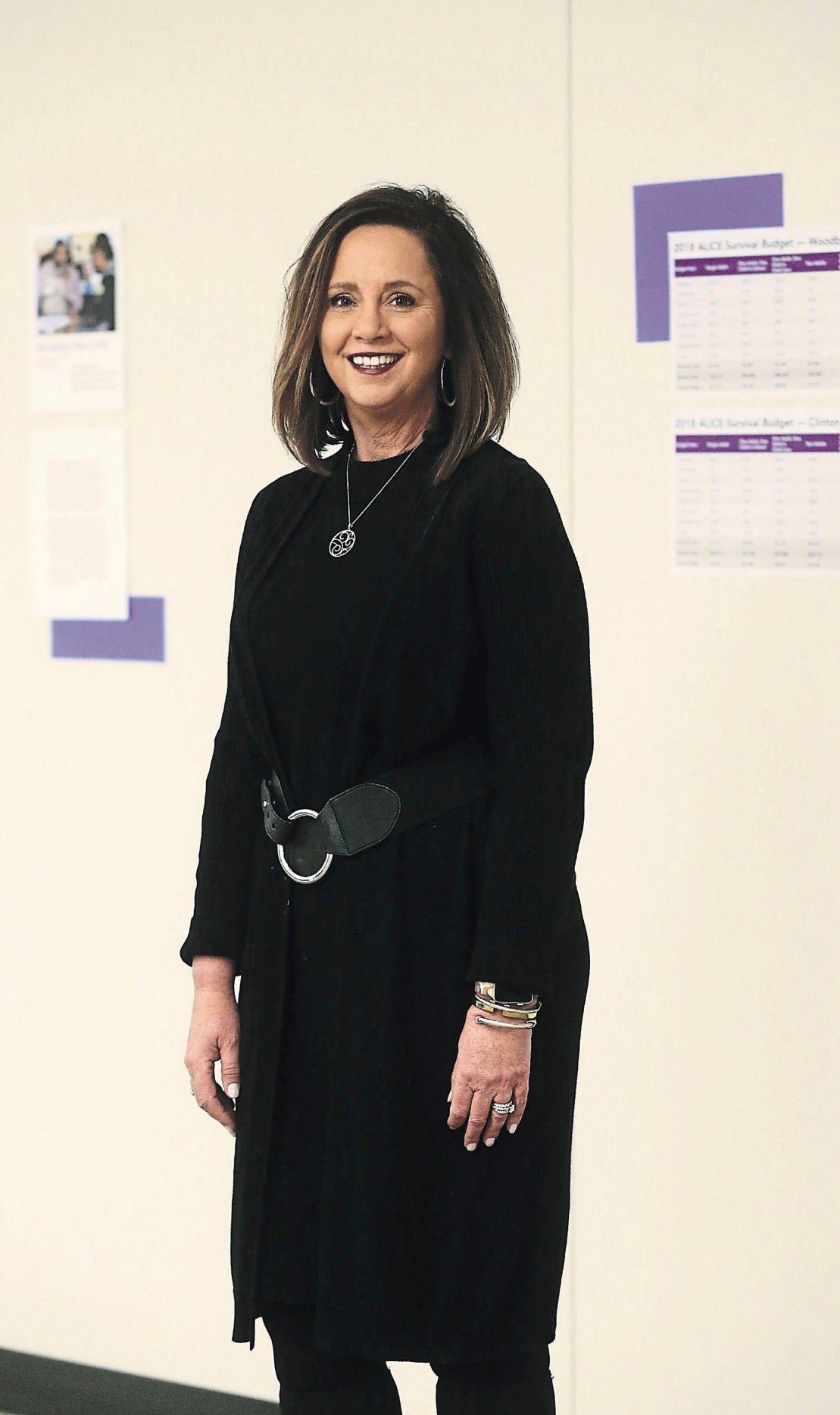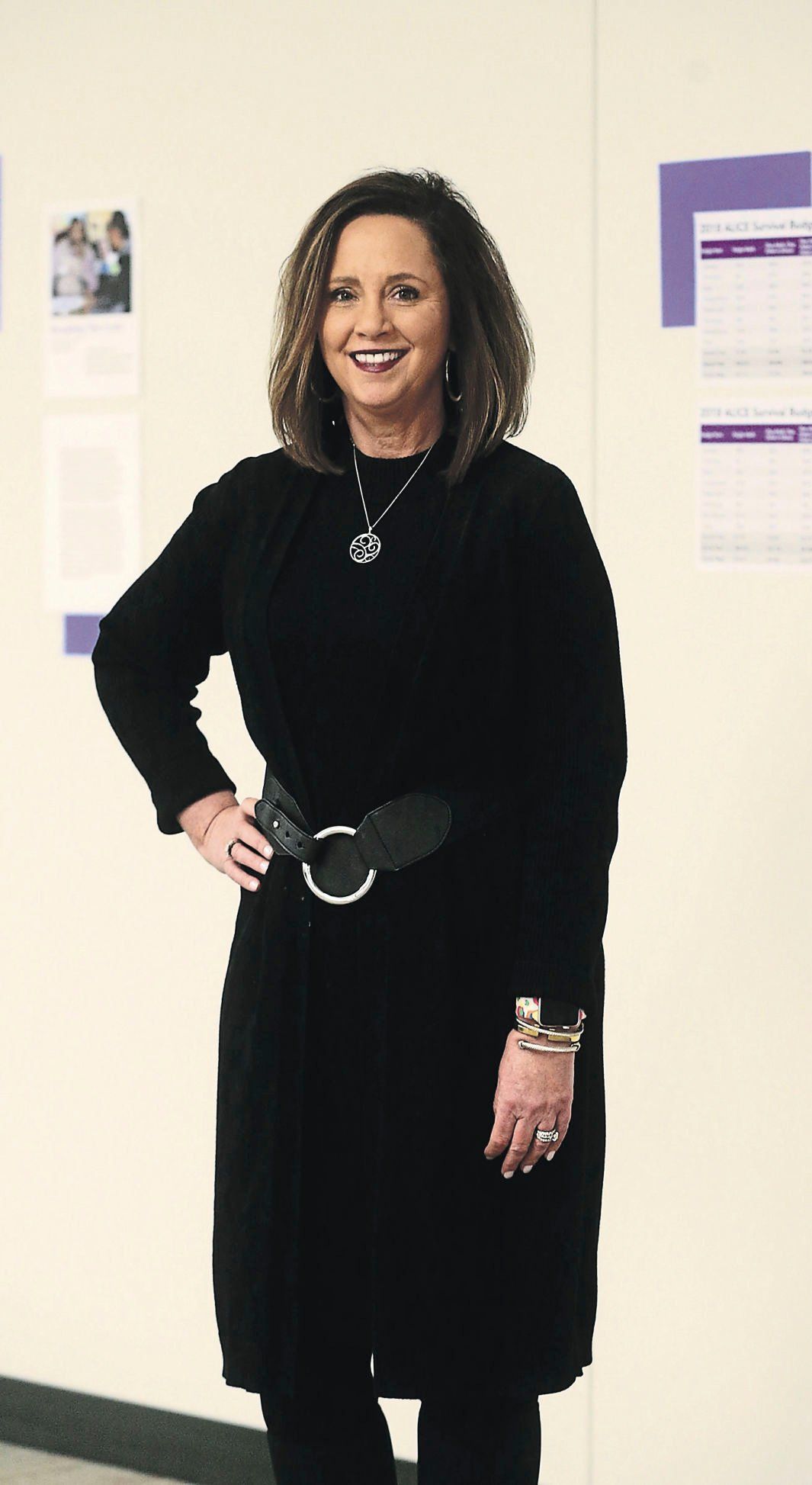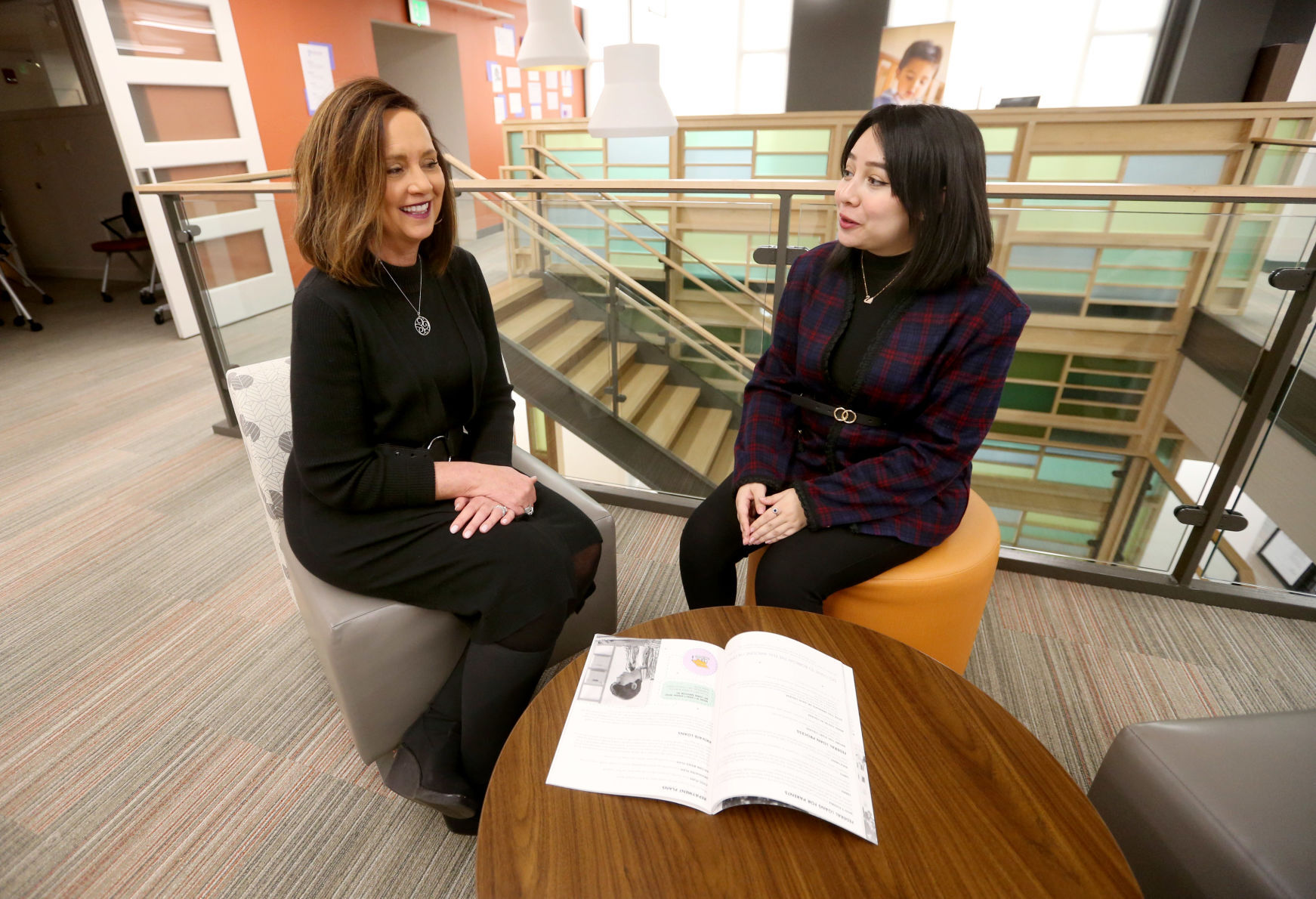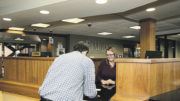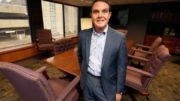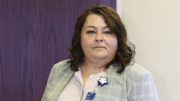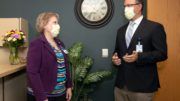Amy Manternach believes in giving back to the community and leaving it a better place than you found it. That’s why, after a successful 20-year career in financial services, she joined the Community Foundation of Greater Dubuque.
In her role at the Community Foundation, Manternach oversees investments and internal controls, supports the development team, assists nonprofits in growing their endowment funds and helps local professional advisers meet their clients’ philanthropic goals. She also serves as the internal point-of-contact for the nonprofit southern affiliate foundation boards and staff, helping them achieve their missions and guiding their focus on endowment building, grantmaking and community leadership.
Before joining the Foundation, she was the vice president of relationship management, client transition and the site lead at Prudential Retirement Services in Dubuque. She has served on executive boards of the Greater Dubuque Development Corp., the Dubuque Area Chamber of Commerce and Aquin Elementary School in Cascade. Manternach also is involved with the St. Matthias Food Pantry and the Cascade, Iowa, swimming pool capital campaign and committee.
Manternach lives in Cascade, her hometown, and has had the opportunity to get involved in foundation initiatives there through Community Heart & Soul and an English for speakers of other languages program run by local volunteers.
She says the best part of her job is seeing transformational change happen across our region, through initiatives like the Campaign for Grade-Level Reading, energy districts and the Regional Roundtable.
“I see generosity in action almost every day, and it really does inspire me. I know we’re making a difference in many people’s lives,” she says.
Amy enjoys road biking, boating and traveling. She and her husband, Weaver, have a son, Jared, who serves the U.S. Navy in the JAG Corps; stepdaughter Melissa and grandchildren Tyler, Melia and Corinne; and stepson Mitch, his wife, Jess, and their daughter Rowan.
Can you name a person who has had a tremendous impact on you as a leader?
My parents, who grew up on farms in Buchanan County before settling down in Dubuque County. They, and our grandparents and other extended family, showed me what hard work looked like. I saw my dad go to work every day and focus on being of service to his clients. My mom raised four kids, volunteered often and worked various jobs throughout her life. Following my parents’ example, I have prioritized the goals of the organizations where I’ve worked then partnered with my team and colleagues to work hard to achieve those objectives. I never set out to get a promotion or a specific title, but by focusing and doing the right thing by my team and the organization, my employers trusted me and provided me with opportunities for leadership. So, I am grateful to my parents for the work ethic.
What are the most important decisions you make as a leader of your organization? Any decisions that impact staff are by far the most important. I believe that the people in an organization are its most important asset, so careful consideration of a decision’s long-term impact to staff and discussions with those who will be impacted are key. If a leader is looking for a quick win, they may make a decision that has negative implications to their staff. However, if they are looking at the long term viability of their organization, they will keep people as a priority in decision making.
As an organization gets larger, there can be a tendency for the “institution” to dampen the “inspiration.” How do you keep this from happening? This is an easy question for someone working at the Community Foundation of Greater Dubuque. Every day, we have the opportunity to work with philanthropic people in our community who want to make gifts that positively impact the lives of our friends and neighbors.
We also have the opportunity to serve the excellent nonprofits in the region by providing financial stewardship of their endowment funds. This allows them to focus on their important missions, from providing food and shelter to those in need to offering great spaces for our community, such as the Dubuque Arboretum and Botanical Gardens.
The Community Foundation is an inspiring place to work because we look for ways to improve lives in our community by being the catalyst and convener for addressing complex social challenges. We have been at the forefront of transformation around issues like access to brain health services and third-grade reading proficiency.
And throughout all of the work the Community Foundation does, I am inspired by the people who are committed to improving all lives throughout our community.
In larger corporate settings, it is important to create a mission statement that is inspiring and then align all work with that mission. This supports a strong understanding among staff members of the work’s importance and the organization’s place in the community. And, as I said before, you have to care about the employees
Which is more important to your organization — mission, core values or vision? I don’t know if you can prioritize mission, vision or values, as each plays a different role for the organization. Mission provides the focus, vision provides the direction and values provide the behavior. As a leader, I think it is extremely important to keep the mission, vision and values relevant, and the strategic plan and staff work plans should be in alignment with all three.
What is one characteristic that you believe every leader should possess? I don’t know if it’s a characteristic as much as a philosophy, which is, I never ask anyone in the organization to do something that I wouldn’t do: Always walk the talk. A good leader knows that no job is beneath her.
What advice do you have for future leaders? Look for skills in each employee and align your team’s strengths with their work. Noticing your staff’s abilities produces a stronger work force and optimal results. I’ve always agreed with the theory in “Good to Great,” by Jim Collins, of “getting the right people on the bus” — in other words, surrounding myself with people who have strengths I lack. This ensures we have a well-rounded team. Then, I can provide the support needed to allow the team to excel and achieve the desired outcomes of the organization.
What lessons can leaders take away from the current pandemic? We really can work from anywhere, and while some roles require people to be in the office the majority of the time, it is important to be flexible balancing the organizations’ needs with the needs of team members.
What are two or three of the best things about being a leader? I very much enjoy seeing people gain confidence, grow their skillset and excel in the workplace.
In a leadership role, I’ve had the opportunity to influence the strategic direction of our organization, watch my team execute our goals and witness the impact on the community and region we have the opportunity to serve.


